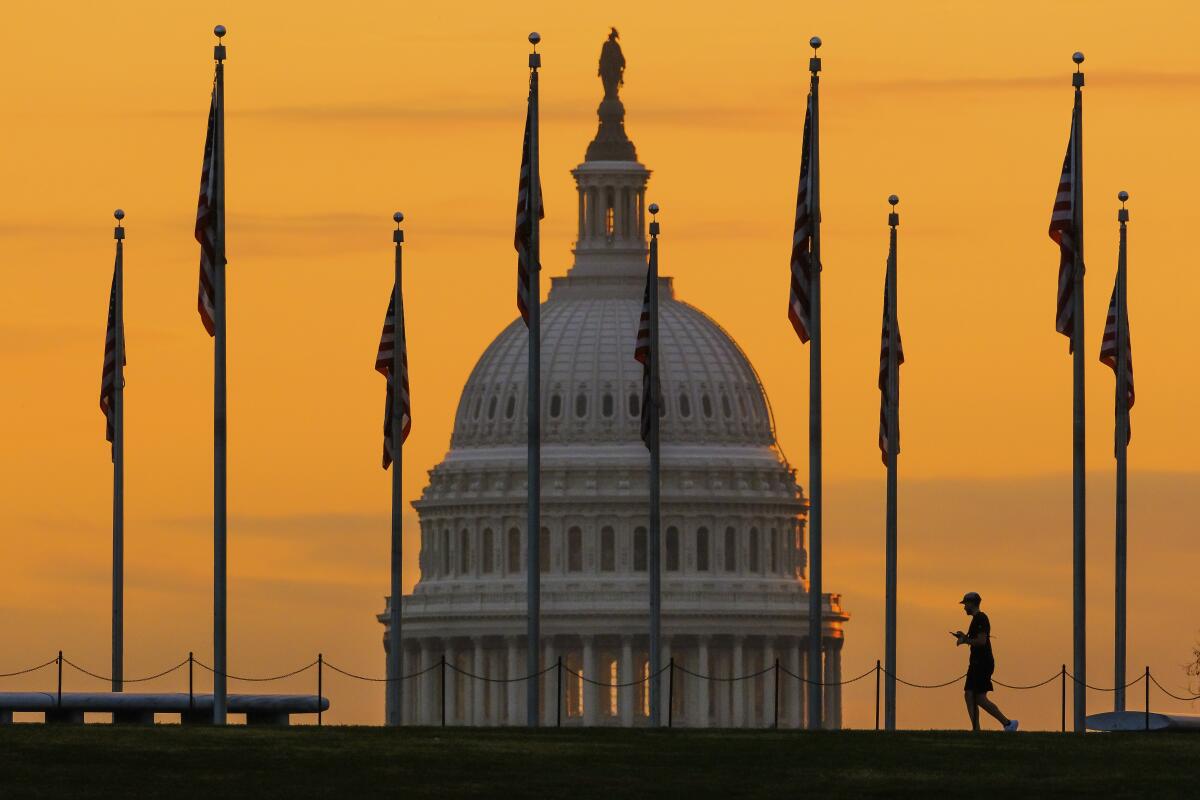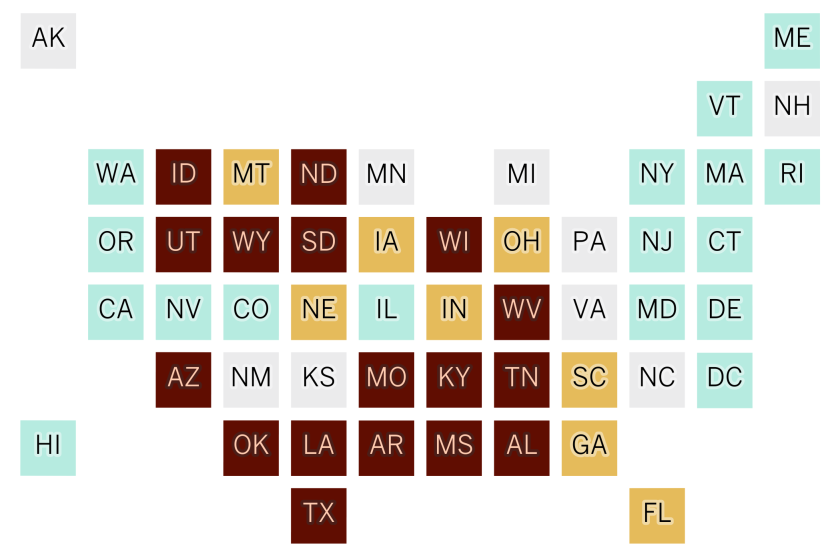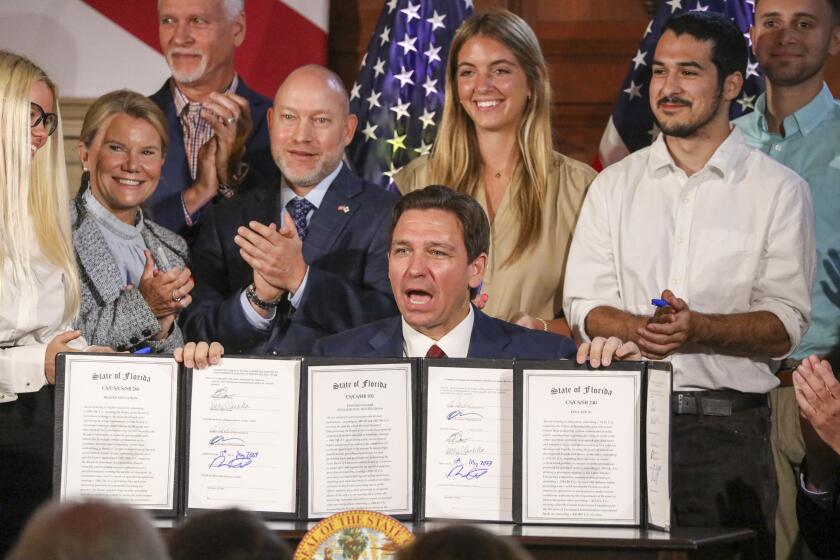Democrats and Republicans share core values but still distrust each other

- Share via
WASHINGTON — Americans on the right and the left have a lot more in common than they might think — including their strong distrust of each other.
A survey published on Wednesday finds that when asked about core values, including fairness, compassion and personal responsibility, about 9 in 10 Democrats and Republicans agreed they were very or extremely important. Yet only about a third of either group said they believed the same was true for the opposing party.
The results of the poll, conducted by NORC at the University of Chicago and the nonprofit group Starts With Us, reveal a stark truth at the source of the polarization that has a powerful grip on domestic politics: Although most Americans agree on the core principles underlying U.S. democracy, they no longer recognize the other side as also holding those values.
“This is a hidden opportunity for Americans to reestablish a sense of shared values,” said Tom Fishman, chief executive at Starts With Us, a nonpartisan organization that works to bridge political polarization. Americans from both parties need to understand that they still share common values, he said, and to recognize their misconceptions about the opposing party.
Americans have a long tradition of quarrelsome politics, dating back to before the Boston Tea Party. But with the notable exception of the Civil War, a sense of unity has kept those forces of division at bay. Experts say that while a certain amount of polarization is natural, it can become a significant problem when it’s exploited by political parties or when one party no longer views the other as legitimate opposition but as an enemy.
The logistics of accessing abortion are about to get more complicated, with at least 26 states set to ban the procedure after the fall of Roe vs. Wade.
A number of factors are cited as possible causes, including the decline and fragmentation of legitimate news sources, politicians who stoke distrust, and social media platforms that spread misinformation while too often sorting users into echo chambers where they seldom encounter an opposing view.
This loss of unity is tied to growing distrust in the media, government, science and public health while political anger has sometimes boiled over into hate speech or violence like that seen on Jan. 6, 2021, when supporters of then-President Trump attacked the U.S. Capitol in a bid to overturn the 2020 election result.
“When you get worried is when polarization turns into dehumanization — a sense that the other is somehow less than human, or evil, or unable to share your decent human values,” said Nealin Parker, executive director of Common Ground USA, a group that works to build trust among Americans. “That should be concerning to anybody, because those are the necessary psychological steps to doing harm to each other.”
Survey respondents were asked to rate the importance of personal responsibility, fair enforcement of the law, representative government, government accountability, compassion and respect across differences, and learning from the past. In each case, about 90% of Democrats and Republicans rated these values as very or extremely important. When asked whether members of the opposing party thought those values were very or extremely important, however, about two-thirds of respondents said no.
Florida Gov. Ron DeSantis has signed a bill that blocks public colleges from using federal or state funding on diversity programs.
For example, while 91% of Republicans said they think it’s very or extremely important that citizens should learn from the past, only about a third of Democrats said they believed that to be true of GOP voters. And while only 31% of Republicans say Democrats believe government accountability is very or extremely important, 90% of Democratic respondents said they do.
The findings reflect “affective polarization,” in which disagreements are based on animosity and a lack of trust instead of an actual debate over values or policy. Julia Minson, a professor at Harvard University’s Harvard Kennedy School, said recognizing common values is a good start to bridging America’s divides.
Too often, Minson said, “we ascribe negative things to people we disagree with. We see them as an adversary that doesn’t want to be a partner. It’s very much about emotions and trust and largely divorced from actual differences.”
The nationwide survey of 1,003 adults was conducted May 11-15 using NORC’s probability-based AmeriSpeak Panel, which is designed to be representative of the U.S. population. The margin of sampling error is plus or minus 4.3 percentage points.
More to Read
Get the L.A. Times Politics newsletter
Deeply reported insights into legislation, politics and policy from Sacramento, Washington and beyond. In your inbox twice per week.
You may occasionally receive promotional content from the Los Angeles Times.












